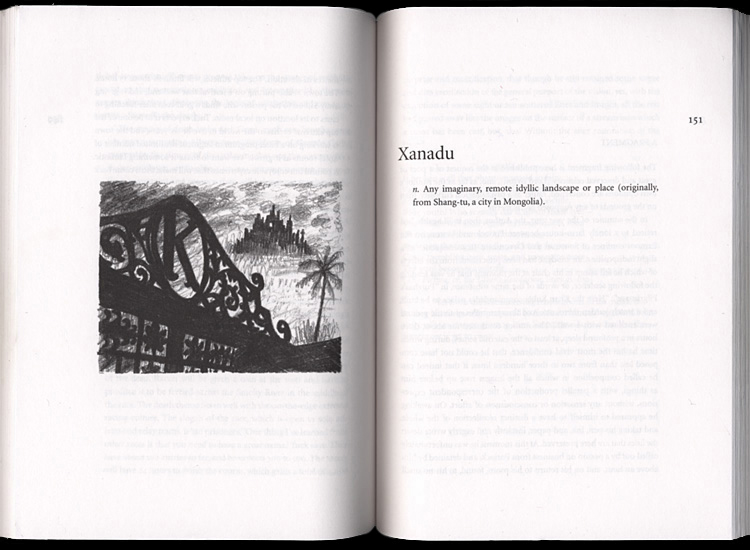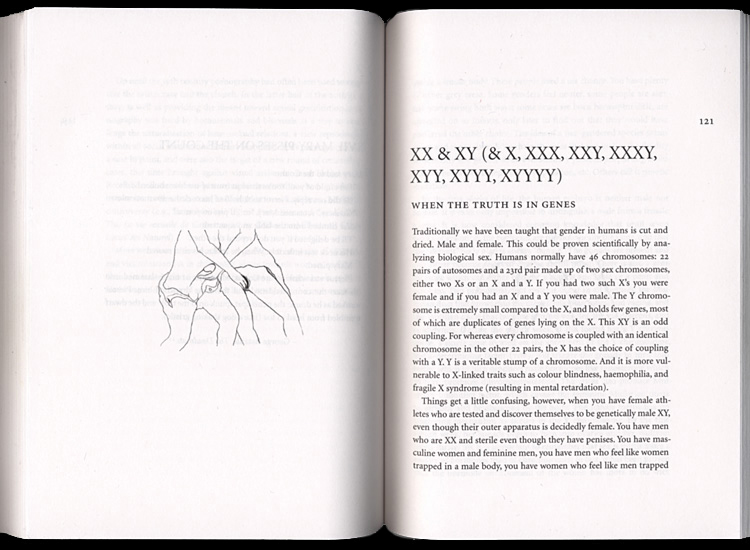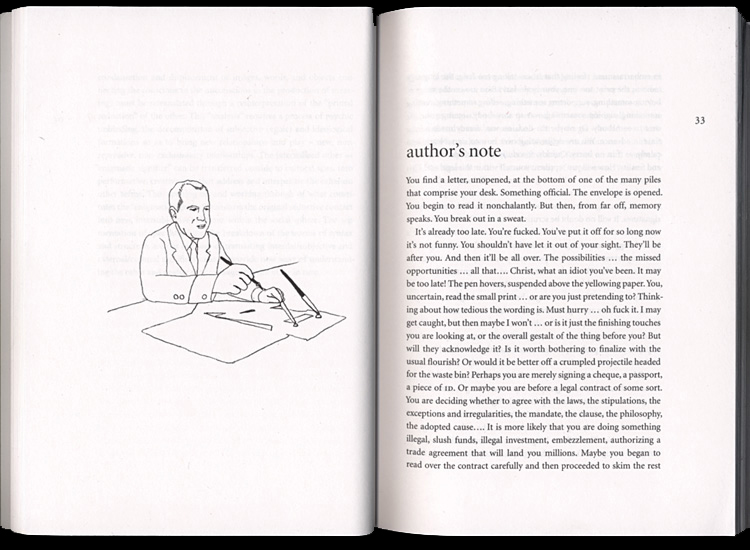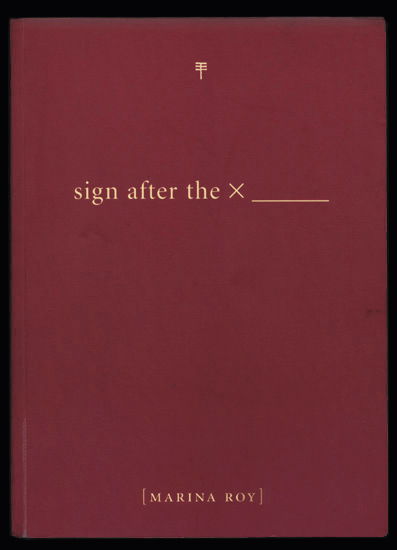Sign after the × _____ is an artist book that weaves together form and content, image and text, into an allegory. On the one hand, an investigation into the letter and symbol “×” reveals how the development of the symbolic realm (language, and other visual forms of representation) contributes to how the unconscious is structured within any given individual, culture or civilization. The way the letter or symbol “×” has been used can hence be understood as an index or symptom for repressed desires and oppressive power structures.
On the other hand, the book formally structures these x-related ideas around the very structure of “the book” itself as cultural artifact. The book is made up of all the preliminary and end matter that tends to structure the conventional academic book, but it does this to the point of exhaustion. A book made up almost entirely of an exhaustive list of preliminary and end matter impresses the idea of the impossibility of attaining a definitive origin or phantasized end. Western civilization’s obsession with the beginnings of life, for instance of determining the missing link between humans and their primate ancestors, illustrates a constant quest for an anthropocentric notion of “truth,” not to mention a desire to harness all life in the name of human-centric needs and desires. Jacques Derrida’s writings shed light on the constant deferral any ultimate truth or origin. The same goes with the West’s obsessions with the end, as in the apocalypse, and the idea of the end of history. This obsession seems to point to the inability of humanity to repress an innate impulse toward violence, and/or the ability to harness the forces of the death drive lurking within the unconscious, propelling humanity toward the brink of extinction.
These two elements of the book’of “×” as a salient symbol for the ideological unconscious at the turn of the 21st century, and of the parts of the book as a metaphor for our obsessions about the unknown (origins/ends) as well as pointing to the “end” of the book in our digital age, and the beginning of a new way of playing with and organizing language and ideas’intersect allegorically to form a kind of literary picture puzzle, or rebus.





